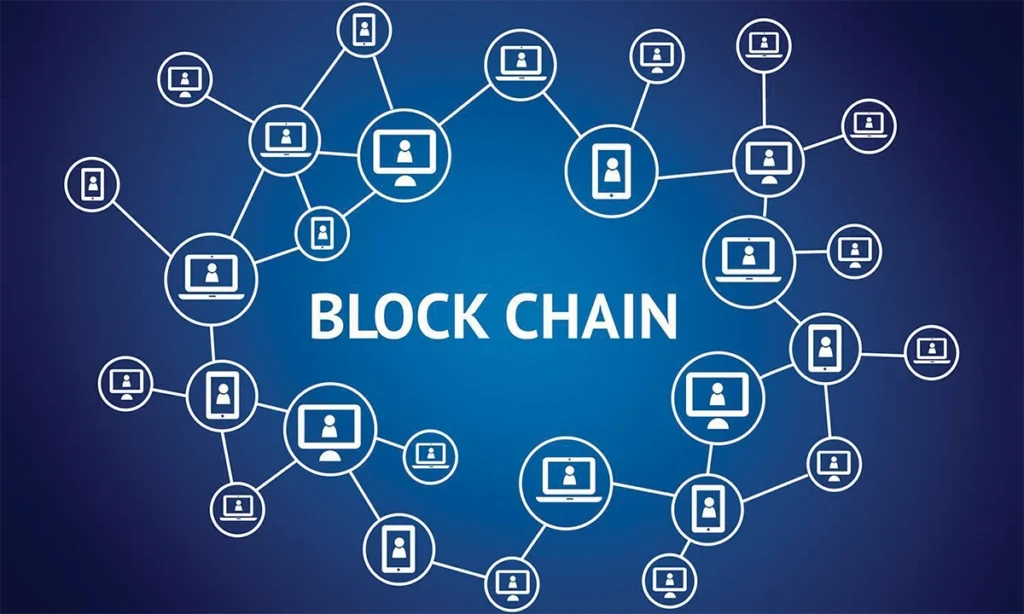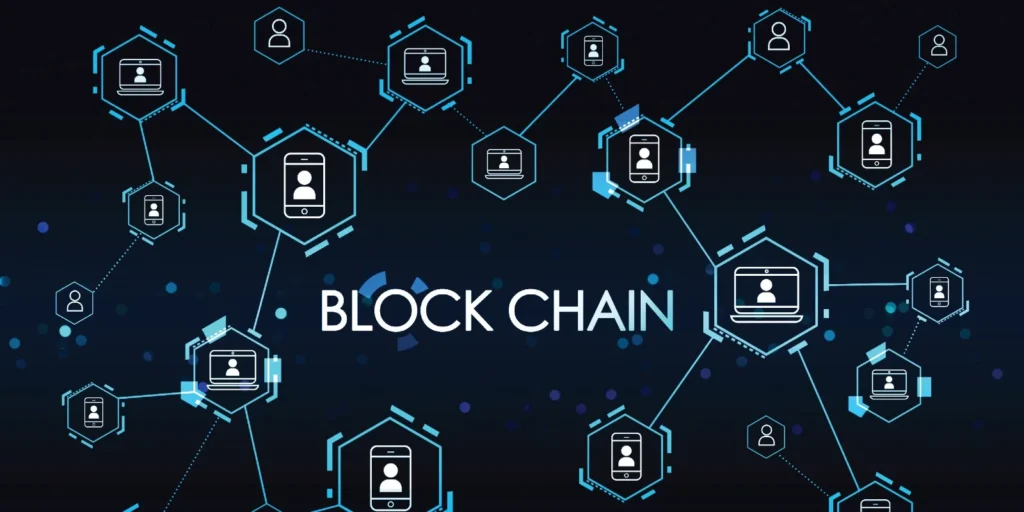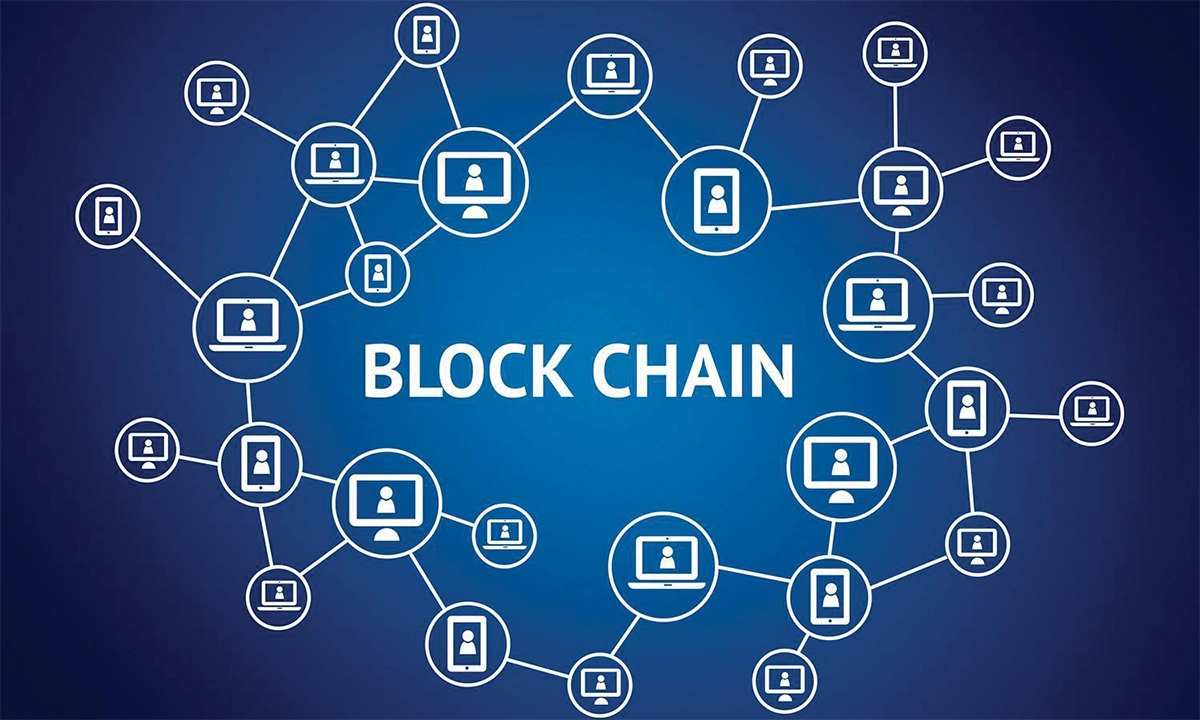Intoduction
One of the 21st century’s most innovative and transformative technologies is rapidly emerging: blockchain technology. It is becoming more and more obvious that blockchain is more than simply a digital ledger or a cryptocurrency tool as businesses all around the world look for new ways to incorporate this technology into their operations. In many respects, it is the digital foundation of a new global order, one in which decentralization, openness, and security will control how we do business, store information, and interact with one another globally.
The importance of blockchain technology, its potential to transform a number of industries, and the reasons it is seen as a major facilitator of a new digital world order will all be covered in this essay.

What is Blockchain?
Blockchain is fundamentally a decentralized digital ledger that keeps track of transactions on several computers. Data storage that is clear, safe, and unchangeable is guaranteed by this technology. A continuous and unbreakable record of data is created by appending each completed “block” to the “chain” of earlier blocks. Each “block” in the blockchain comprises a list of transactions.
Because it technology is decentralized, it is immune to censorship, fraud, and manipulation because there is no central authority monitoring transactions. This stands in sharp contrast to conventional centralized systems, which are susceptible to hacking, corruption, and system failures and are controlled by a single person.
Although Bitcoin, the original cryptocurrency, is the most well-known use of technology, blockchain technology has far more potential than just digital currencies. Blockchain has the potential to upend almost every sector by facilitating safe, open, and effective operations, from voting systems and intellectual property rights to supply chains and healthcare.
Also Read:https://trendspotter.online/business-insurance-a-comprehensive-overview/
Decentralization: The Foundation of the New World Order
The decentralization of power and control is one of the most significant features of blockchain technology. Conventional systems, whether in business, government, or finance, are usually centralized, which means that one organization controls the data and procedures. Vulnerabilities result from this, such as the possibility of fraud, inefficiency, and corruption.
On the other hand, blockchain transfers authority to a dispersed network of nodes, or computers, that verify and log transactions. Because no one entity controls the entire network in this decentralized arrangement, the likelihood of single points of failure is significantly decreased. Furthermore, it is practically hard to change historical records covertly due to the system’s transparency and the data’s many storage places.
Within the framework of a “new world order,” decentralization plays a crucial role in fostering justice and trust. Any member of the network can independently verify transactions, and it fosters an atmosphere where power is dispersed more fairly. This departure from centralized authority is a fundamental shift in how society views power, trust, and control rather than only a technological one.
Transparency and Trust in a Blockchain-Powered World
Another essential component of blockchain technology is transparency. All network users may see every transaction that is recorded on the blockchain, and once it is recorded, it cannot be undone. This guarantees that the data is reliable because no one can change or remove a transaction without the network’s approval.
In conventional systems, trust frequently depends on middlemen like banks, governments, or outside groups. These organizations serve as gatekeepers, guaranteeing the security of information and the validity of transactions. But this paradigm comes with dangers, extra expenses, and inefficiencies. By enabling direct peer-to-peer transactions and integrating trust into the system itself, this eliminates the need for these middlemen.
For sectors like banking, healthcare, and legal services that mainly depend on trust and security, the ability to validate transactions without the involvement of a reliable third party is revolutionary. For instance, blockchain might speed up cross-border payments, save transaction costs, and lessen fraud in the financial sector.
Transparency will be crucial in the new global order that blockchain is shaping. Because the system is built to guard against fraud, manipulation, and corruption, it will enable people and companies to conduct business with trust. this promotes a more transparent, responsible, and just global ecosystem in this way.

Blockchain’s Role in Redefining the Global Economy
The world economy is at a turning point. Blockchain is at the vanguard of the technological revolution that is challenging established business and financial paradigms. Blockchain has the ability to build a more efficient and inclusive global economy by offering a safe, decentralized, and transparent transaction platform.
Financial Inclusion: The potential of blockchain technology to provide financial services to marginalized groups is among its most exciting features. Around 1.7 billion individuals worldwide lack access to traditional banking services, or are unbanked, according to the World Bank. Cryptocurrency and blockchain-based solutions give these people a means of engaging with the world economy. Without depending on conventional financial institutions, consumers can transfer and receive money, obtain loans, and store value with just a smartphone and an internet connection.
Blockchain has the ability to completely transform cross-border payments as well. Conventional overseas money transfers are frequently costly, time-consuming, and fraught with fees. On the other hand, of enables inexpensive, almost immediate transactions that can get around the conventional banking system. Because it lowers the costs and friction involved with cross-border transactions, this has important ramifications for international business, remittances, and global trade.
Automation and Smart Contracts: The possibilities of blockchain technology go beyond financial transactions and payments. Blockchain makes it possible to automate company agreements and procedures with the introduction of smart contracts. Smart contracts are self-executing agreements that have their terms encoded directly into the code. These contracts eliminate the need for middlemen and boost efficiency by automatically executing when specified criteria are satisfied.
Smart contracts have the potential to upend sectors including supply chain management, insurance, and real estate in the framework of the global economy. Blockchain-based smart contracts, for example, have the potential to automate real estate transactions, doing away with paper-based procedures and cutting down on the time and expenses involved in purchasing and selling real estate.
Also Read:https://trendspotter.online/digital-marketing-transform-business-in-era/
Blockchain in Key Industries: Transforming the Future
Supply Chain Management
Supply chain management is among the most exciting uses of blockchain technology. Supply chains have historically been intricate, opaque, and vulnerable to fraud and inefficiency. this provides a transparent, real-time record of all supply chain transactions, from the procurement of raw materials to the delivery of the finished product.
Customers can use blockchain technology to follow a product’s path from the point of origin to their door, guaranteeing that it is high-quality, ethically sourced, and undamaged. This degree of openness has the potential to revolutionize sectors where traceability is essential, like food, medicine, and luxury goods.
Healthcare
Another industry that blockchain has the potential to revolutionize is healthcare. Data breaches, fraud, and inefficiencies plague healthcare systems worldwide. By lowering administrative expenses, increasing the accuracy of medical records, and offering a tamper-proof record of patient data, blockchain’s security and transparency may be able to help with these problems.
For instance, while maintaining their privacy, patients might be in charge of their medical records and share them with healthcare professionals when required. Blockchain technology may also assist guarantee the safety and authenticity of medicinal items and lessen insurance claim fraud.

Voting and Governance
Blockchain technology has the ability to completely change how societies are governed and elections are held. Conventional voting methods are frequently susceptible to technical problems, fraud, and manipulation. By offering a voting mechanism that is safe, transparent, and verifiable, this provides a solution that can guarantee election integrity.
Voters could cast their ballots safely and privately using blockchain-based voting systems, confident that their votes will be counted precisely and impartially. Furthermore, voter fraud may be eradicated and public confidence in political processes increased because to blockchain’s openness.
Decentralization: Empowering a New Era of Trust and Autonomy
One of the main characteristics that makes this technology so revolutionary is decentralization. Blockchain functions on a decentralized network as opposed to conventional centralized systems, where control over data, transactions, and decision-making is held by a single person or group. This indicates that rather than being concentrated in the hands of a single central authority, control is dispersed across numerous nodes (computers or participants).
Our understanding of trust and autonomy is radically changed by this move toward decentralization. Intermediaries that handle and verify information, like banks, governments, or businesses, are frequently trusted in centralized systems. These middlemen, however, are vulnerable to corruption, inefficiencies, and even hacking, making them potential failure spots. By employing a consensus process that guarantees each network member can independently verify transactions, blockchain removes the need for these middlemen. Instead than depending on a single party to attest to the technology, trust is thereby ingrained in the technology itself.
More autonomy for both individuals and organizations is another benefit of decentralization. Blockchain enables direct, peer-to-peer interactions that are more secure, quicker, and less expensive by eliminating middlemen. It creates a more democratic and egalitarian digital ecosystem by enabling people to have greater control over their financial, digital assets, and personal data.
In the end, decentralization is a key component of the “new world order” that of envisions. It is not merely a technological aspect; rather, it is a philosophical movement that questions established power dynamics and ushers in a time when authority is more decentralized, open, and responsible.
Also Read:https://trendspotter.online/seo-proven-tactics-websites-visibility/
Conclusion
Blockchain technology is the digital foundation of a new global order, not just a new method of conducting transactions. Blockchain has the ability to upend and change industries all over the world with its decentralized, transparent, and secure nature, resulting in a more effective, just, and reliable global ecosystem.
Blockchain is already starting to change how we live and work, from supply chains and finance to healthcare and governance. As technology develops further, it will open up new avenues for empowerment, creativity, and teamwork, allowing people and companies to engage in the global economy in ways that were previously unthinkable.
Blockchain is a paradigm shift that will radically alter how we interact with one another and the environment. It is not merely a technology advancement. The tenets of this new global order will be decentralization, transparency, and trust, with blockchain acting as the cornerstone of this new digital civilization.
